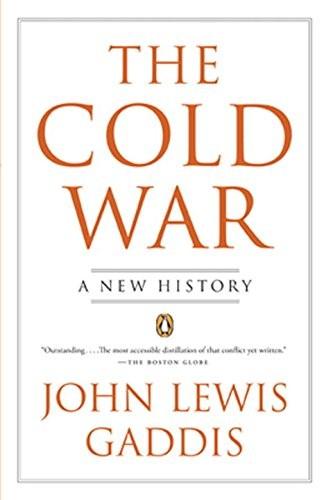
The Cold War: A New History
by
John Lewis Gaddis
Published 1 Jan 2005
Mal’kov, “Commentary,” in ibid., p. 75. 39 Charles E. Bohlen, Witness to History: 1929–1969 (New York: Norton, 1973), p. 263. 40 Public Papers of the Presidents of the United States: Harry S. Truman, 1947 (Washington: Government Printing Office, 1963), pp. 178–79. 41 Yoram Gorlizki and Oleg Khlevniuk, Cold Peace: Stalin and the Soviet Ruling Circle, 1945–1953 (New York: Oxford University Press, 2004), pp. 35–36. 42 Kennan, Memoirs: 1925–1950, p. 326. 43 John Lewis Gaddis, We Now Know: Rethinking Cold War History (New York: Oxford University Press, 1997), pp. 41–42. 44 Montefiore, Stalin, p. 569. 45 John A.
…
Levering, et al., eds., Debating the Origins of the Cold War: American and Russian Perspective (New York: Rowman & Littlefield, 2002), p. 100. 27 Suny, The Soviet Experiment, p. 376. 28 Anne Applebaum, Gulag: A History (New York: Doubleday, 2003), pp. xvi, 92. For Stalin’s last years, see Yoram Gorlizki and Oleg Khlevniuk, Cold Peace: Stalin and the Soviet Ruling Circle, 1945–1953 (New York: Oxford University Press, 2004); and Simon Sebag Montefiore, Stalin: The Court of the Red Tsar (New York: Knopf, 2004), pp. 585–650. 29 Karl Marx, “Manifesto of the Communist Party,” in Robert C. Tucker, ed., The Marx-Engels Reader, second edition (New York: Norton, 1978), p. 500. 30 For more on Kennan’s reasoning, see Gaddis, Strategies of Containment, pp. 30–31. 31 Montefiore, Stalin, p. 614. 32 Jonathan Brent and Vladimir P.
…
Conversations with Gorbachev: On Perestroika, The Prague Spring, and the Crossroads of Socialism. Translated by George Schriver. New York: Columbia University Press, 2002. Gordon, Philip H. A Certain Idea of France: French Security Policy and the Gaullist Legacy. Princeton: Princeton University Press, 1993. Gorlizki, Yoram, and Oleg Khlevniuk. Cold Peace: Stalin and the Soviet Ruling Circle, 1945–1953. New York: Oxford University Press, 2004. Gwertzman, Bernard, and Michael T. Kaufman, eds. The Collapse of Communism. New York: Random House, 1990. Hall, R. Cargill, and Clayton D. Laurie, eds. Early Cold War Overflights. Two volumes. Washington: National Reconnaissance Office, 2003.
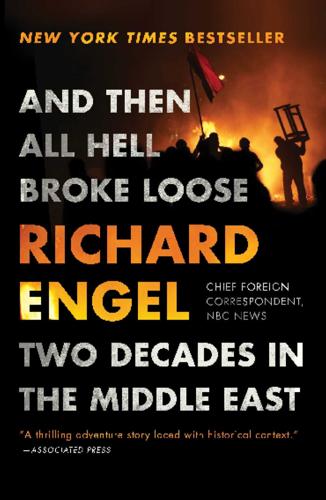
And Then All Hell Broke Loose: Two Decades in the Middle East
by
Richard Engel
Published 9 Feb 2016
It was a crime for fishmongers in Egypt and Iraq to wrap their Nile perch and red mullet in newspapers that had the presidents’ photograph on them. It was understood that big men stole and appointed their children and wives to high-profile and well-paid charities and political posts. The people were under-educated and under-employed, but the states held together, maintained a cold peace with Israel, and kept producing oil and shipping it out. Of course, all the big men had rivals. They were all opposed by Islamic dreamers and fundamentalists. Islam has never accepted a division of church and state. For Islamists the distinction is nonsensical and heretical. In their eyes, Islam is a perfect system handed down by Allah himself through his chosen vessel with specific instructions on how men and women should manage their daily lives.
…
Since World War II, when the United States replaced Europe in the role of patron of the region, Washington’s goal in the Middle East can be summed up in one word: stability. With the Eisenhower and Carter doctrines, and President George H. W. Bush’s war to push Saddam Hussein out of Kuwait but not overthrow him, Washington had tried to maintain basic stability, keep the region’s oil flowing, and uphold the cold peace with Israel. Suddenly, that all seemed out the window. First, President Bush toppled Saddam Hussein for no good reason except Washington, and the president personally, wanted revenge after 9/11 and wasn’t satisfied with Afghanistan. Now President Obama was turning his back on America’s oldest and closest ally in the Arab world.
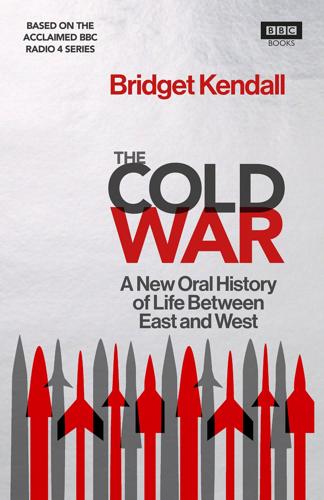
The Cold War: Stories From the Big Freeze
by
Bridget Kendall
Published 14 May 2017
Contents Cover About the Book About the Author Title Page Introduction ‘Then all hell broke loose’ The Greek Civil War (1944–9) ‘The Iron Curtain was in place’ The Communist Coup in Czechoslovakia (1948) ‘There were no weapons, only arguments, ideas’ The Italian Election of 1948 ‘We were suddenly shut off’ The Berlin Blockade (1948–9) ‘Then fear replaced pride’ The Fall of Shanghai (1949) ‘The trap shut’ The Korean War (1950–3) ‘The world became a hostile place’ McCarthyism (1950–4) ‘When I saw the light, I had no idea what was happening’ The H-Bomb (1950s) ‘Now it was going to be different’ The East German Uprising (1953) ‘Democracy and freedom became a memory only’ The Iranian Coup (1953) ‘It was the beginning of freedom’ Khrushchev’s Secret Speech (1956) ‘We are not your comrades’ The Hungarian Revolution (1956) ‘They were leaving with only their suitcases, they lost everything’ The Congo Crisis (1960–1) ‘If one went, one couldn’t return’ The Berlin Wall (1961) ‘The world was going to end any time now’ The Cuban Missile Crisis (1962) ‘There was no future’ The Fall of Khrushchev and the Rise of Brezhnev (1964–82) ‘They could accuse you of anything’ The Outbreak of the Chinese Cultural Revolution (1966–7) ‘They didn’t want to live in the dark any more’ The Prague Spring (1968) ‘I can’t wash that stain away’ America’s Vietnam War (1965–73) ‘Everything that you thought is not true any more’ The Coup in Chile (1973) ‘These were just ordinary men marching in the street’ The Fall of Saigon and the Aftermath of the Vietnam War (1975–9) ‘We fell into each other’s arms’ The Cold Peace and Ostpolitik (1969–79) ‘The country was left with no protection at all’ The Angolan Civil War (1975–2002) ‘The newcomer holding a weapon is the enemy’ The Soviet Invasion of Afghanistan (1979–89) ‘We came out victorious’ The Birth of Solidarity in Poland (1980) ‘A threat to our mutual humanity’ The Nuclear Arms Race and CND (1981–7) ‘Everyone wanted change’ Gorbachev’s Perestroika (1985–91) ‘They are not so different from us’ The Fall of the Berlin Wall and German Reunification (1989–90) ‘The greatest value of mankind is their freedom’ The Baltic Republics Leave the Soviet Union (1988–91) ‘The last nail in the coffin’ The Collapse of the Soviet Union (1991) Contributor Biographies Picture Section Further Reading: Contributors’ Publications Further Reading Index of Contributors Index Acknowledgements Picture Credits Copyright About the Book Accompanying a landmark BBC Radio 4 series, The Cold War is essential reading for anyone seeking to understand how the tensions of the last century have shaped the modern world, and what it was like to live through them.
…
The two major Communist powers, China and the Soviet Union, fell out, and the United States found itself embroiled in an unwinnable war against Communists in Vietnam. By the 1970s, the division of Europe had become a fact of life, codified into a ‘new normal’ by the process of détente and an ‘Eastern Policy’ – ‘Ostpolitik’ – to foster better links between the two sides of a divided Germany. But if the old battleground of Europe adjusted to a ‘cold peace’ and both superpowers agreed that any conflict involving nuclear weapons had to be off limits, this did not mean that the era of confrontation was over. Far from it. In Europe, the Cold War remained a conflict of nerves, but in Asia, Africa and Latin America it erupted into bloodstained battles, as the big powers fuelled and engineered a series of coups and civil wars, acting out their rivalry in distant proxy conflicts.
…
I was very happy that we had made the journey and had finally arrived in a safe place, and everyone on that boat had made it. What kept me going was a sense of hope that I had finally left Vietnam and had arrived in a new country with a new beginning. ‘We fell into each other’s arms’ The Cold Peace and Ostpolitik (1969–79) AS THE COLD War wore on through the 1960s and 1970s, positions on both sides became entrenched, but at the same time governments in both East and West were keen to avoid unnecessary escalations. Neither Moscow nor Washington wanted to repeat the experience of the Cuban Missile Crisis in 1962, when the world had teetered on the brink of nuclear destruction.
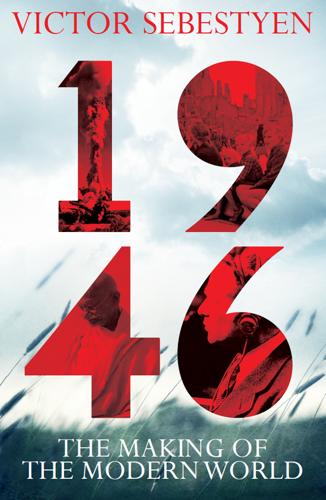
1946: The Making of the Modern World
by
Victor Sebestyen
Published 30 Sep 2014
Little Brown, Boston, MA, 1967 Kersten, Krystyna, The Establishment of Communist Rule in Poland, 1943–1948. University of California Press, Berkeley, CA, 1991 Khan, Yasmin, The Great Partition: The Making of India and Pakistan. Yale University Press, 2007 Khlevniuk, Oleg V., and Yoram Gorlizki, Cold Peace: Stalin and the Soviet Ruling Circle 1945–1953. Oxford University Press, Oxford, 2004 Khrushchev, Nikita (trans. and ed. Jerrold L. Schecter with Vyacheslav V. Luchkov), Khrushchev Remembers: The Glasnost Tapes. Little Brown, Boston, MA, 1990 Kimball, Warren, The Juggler: Franklin Roosevelt as Wartime Statesman.
…
Holloway, Stalin and the Bomb, p. 145, and Sebag Montefiore, Stalin, p. 438. 10. Sebag Montefiore, Stalin, p. 422. 11. Cadogan, Diaries, p. 476. 12. Khrushchev, Khrushchev Remembers, p. 365. 13. Beria, My Father, p. 260. 14. Khrushchev, Khrushchev Remembers, p. 343. 15. Sebag Montefiore, Stalin, pp. 435–8, and Khlevniuk and Gorlizki, Cold Peace, pp. 223–7. Also in RGASPI 538.12. 744. 16. Gellately, Stalin’s Curse, p. 247. 4. Stunde Null – Zero Hour 1. Andrew Murray, Coal Dust Covered Decisions, monograph, University College Dublin, 2010. p. 19. 2. Ibid., p. 22. 3. Clare, Berlin Days, p. 43. 4. Klemperer, To The Bitter End, p. 298; Anne O’Hare McCormick, New York Times, 30 May 1945. 5.
…
Bogusław Kopka has compiled the most comprehensive database of the Polish labour camps from 1944 to 1950: Obozy pracy w Polsce 1944–1950: przewodnik encyklopedyczny, Ośrodek Karta, Warsaw, 2002. 16. OMGUS Welfare Department, RG 260/287/32, and McDonogh, After the Reich, p. 259. 13. ‘Anywhere But Home’ 1. Sebag Montefiore, Stalin, p. 524, and Khlevniuk and Gorlizki, Cold Peace, p. 257. 2. Stalin to Zhukov, Sebag Montefiore, Stalin, p. 525; Military Council statement, Izvestia, 26 June 1946. 3. APRF, 437. f. 28. 424. 4. Harriman and Abel, Special Envoy, p. 286. 5. Eden to Churchill, TNA: FO 371 2097/304; Dean quoted in Lowe, Savage Continent, p. 256; Selborne to Churchill, Cabinet papers TNA: PREM 4/109.113. 6.
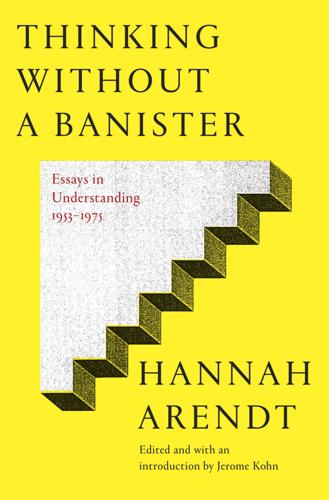
Thinking Without a Banister: Essays in Understanding, 1953-1975
by
Hannah Arendt
Published 6 Mar 2018
Immediately upon the close of the Second World War there followed a period we chose to call the “cold war,” a term that I think was a misnomer. The fifteen years behind us were a time of uneasy “cold peace” in which the two great world powers have tried, more or less successfully, to define their spheres of influence and to jockey for position in the rapidly changing power structure of a world in turmoil. However, the very fact that we have been calling “cold war” what actually was “cold peace” testifies to our main preoccupation with the fear of war. That we have been far more preoccupied with this fear than with any other issue has been manifest in each of the major crises during this period—the Korean War, the Suez adventure, the Hungarian and the Cuban revolutions; in each of these instances, our conduct was primarily determined by fear of a major war that would be a war with nuclear weapons.
…
The answer to an absolute weapon, as the H-bomb has been rightly called, seems to be an absolute deterrent that could make sure beyond all doubt that victor and vanquished would go down together. With Polaris submarines, we seem to approach this point of absolute weapon answered by absolute deterrent; the result will be the stabilization of the atomic stalemate, which, under present circumstances, is not “cold war,” but cold peace and the factual condition for coexistence. At about the same time, the missile gap will be closed, and this will have the happy result that our foreign policy will be freed from the heavy disabilities our present defense situation imposes on it due to the necessity of foreign bases. If the conventions served no other purpose than to offer Mr.
…
I use this old comparison of war and chess not because I believe that it has been true in the past, but because it looks as though we were moving into a direction of mastering the technical means of violence in which the old simile might unexpectedly acquire its measure of truth. Cold war, then, is actually hypothetical war, and hypothetical war, like cold peace, is determined by our justified fear of real war. It sometimes looks as though our only hope lies in the substitution of hypothetical warfare for real war—at least until we arrive at a state of international affairs which rules out the use of the means of violence as a last resort of all policy.
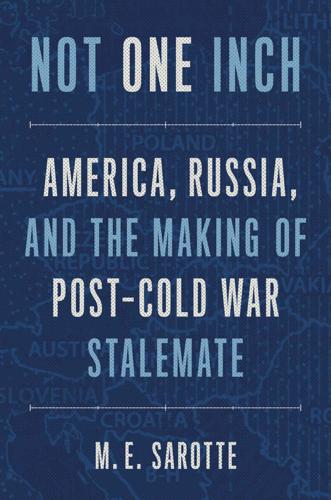
Not One Inch: America, Russia, and the Making of Post-Cold War Stalemate
by
M. E. Sarotte
Published 29 Nov 2021
Office of the Press Secretary, “Remarks by the President at Plenary Session of 1994 Summit of the Council [sic] on Security and Cooperation in Europe,” Budapest Congress Center, Budapest, Hungary, December 5, 1994, 9:58am, https://clintonwhitehouse6.archives.gov/1994/12/1994-12-05-president-remarks-at-csce-summit-in-budapest.html. 141. Kozyrev, Firebird, 283. 142. Dean E. Murphy, “Broader NATO May Bring ‘Cold Peace,’ Yeltsin Warns,” Los Angeles Times, December 6, 1994; Carter and Perry, Preventive Defense, 31. Talbott recalled being worried that, with “cold peace,” Yeltsin had found a “catchphrase” for the post–Cold War era; Talbott, Russia Hand, 134. 143. As recalled the following year by Talbott in Memorandum for the Secretary, from Strobe Talbott, “From Moscow to Halifax, and Beyond—US Policy toward Russia through 1996,” May 17, 1995, EBB-447, NSA.
…
The president added for emphasis that no country outside the alliance would be allowed “to veto expansion.”140 The Russian delegation felt that, with those words, Clinton was intentionally adding injury to the insult from Brussels.141 Yeltsin vented his frustrations publicly in response. The Russian president caustically accused Clinton, in the interest of NATO expansion, of risking a “ ‘cold peace.’ ”142 The plan to sign the Budapest Memorandum almost fell apart. Talbott later disclosed that “it took our President’s full personal engagement with Yeltsin to save the Ukrainian trilateral deal at the last minute.”143 Clinton’s salvage efforts brought the memorandum and ratification process just barely across the finish line, with the result that START I, which eliminated strategic bombers and missile launchers carrying more than 9,000 warheads, finally entered into force.
…
The Russian foreign minister, he thought, had goaded Yeltsin into an outburst as payback for his own humiliation in Brussels. And Talbott suspected Kozyrev had been encouraged by West Europeans, who “were doing quite a bit of bad-mouthing of our position, saying to the Russians, ‘Your problem is not with us—it’s with the Americans; they’re the ones pushing expansion.’ ” Talbott surmised that Yeltsin’s angry “cold peace” speech was prompted by Kozyrev intentionally stoking the Russian president’s anger.153 Yeltsin was not done. Shortly after Budapest, he took a series of tragic steps that would result, among other damage, in self-inflicted wounds. The Russian president had already signed a decree on November 30, 1994 approving measures to counter breakaway rebels in the Chechnya region of Russia.
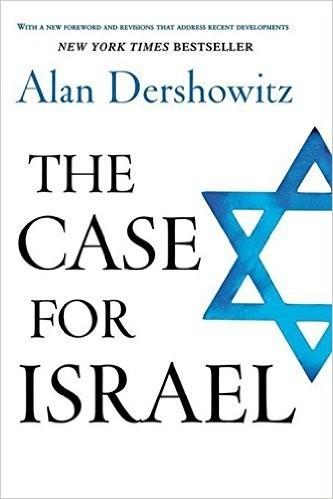
The Case for Israel
by
Alan Dershowitz
Published 31 Jul 2003
No one disputes that the Egyptians and Syrians, who inflicted considerable casualties on the Israelis, started the Yom Kippur War. Their goal was to recover the land lost to Israel from the Six-Day War—the war the Egyptians started, despite the fact that the Israelis fired the first shot. In the end, the Egyptians accomplished that goal and recovered the entire Sinai after making a cold peace with Israel. The Syrians failed in their effort to regain the Golan Heights because they refused to make any kind of peace with Israel. Israel learned some important lessons from the Yom Kippur War. First and foremost, it learned how vulnerable it was to a surprise attack, even with expanded borders.
…
As soon as Sadat courageously indicated a willingness to make peace with Israel in exchange for the Sinai, the Israeli government, then under the control of the hawkish Likud Party and its tough-talking leader, Menachem Begin, uprooted the Jewish settlers in the Sinai and returned it, oil fields and all, to Egypt. The decision to make peace, even a cold peace in exchange for the strategically and minerally valuable Sinai, may have cost Sadat his life—as Jordan’s King Abdullah’s decision to even consider peace with Israel cost him his life a quartercentury earlier. But it paved the way for Jordan’s King Hussein, Abdullah’s grandson, to make peace with Israel.
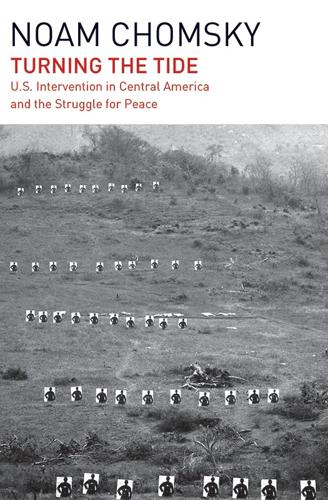
Turning the Tide
by
Noam Chomsky
Published 14 Sep 2015
See George Ball, New York Review, Nov. 8, 1984, April 11, 1984, for a number of such quotes; Ze’ev Blitzer, Al Hamishmar (Israel), Oct. 27, 1983, reporting Reagan’s comments to Tom Dine, head of the Israeli lobbying group AIPAC, while thanking him for “the behind-the-scenes efforts of the pro-Israeli lobby to mobilize support in Congress for the continued American presence in Lebanon.” 45. “From Cold War to Cold Peace?,” Business Week, Feb. 12, 1949; Economist, April 13, 1985. 46. LaFeber, America, Russia, and the Cold War; for an important contemporary discussion, see James Warburg, Germany Key to Peace (Harvard, 1953). The incident has largely disappeared from history. 47. Leffler, “The American Conception of National Security”; see also the discussion of his paper in the same issue by John Lewis Gaddis and Bruce Kuniholm, raising no serious question concerning his thesis, and Leffler’s response.
…
Walter Pincus, WP Weekly, Oct. 7, 1985. 82. Alfred Chandler, Joseph Monsen, Daedalus, Winter, 1969; Wilson quoted in Richard Barnet, The Economy of Death (Atheneum, 1969), 116. 83. Gaddis, Strategies of Containment, 93-4, 204. 84. Felix Rohatyn, Interview, World Policy Journal (Fall1984). 85. “From Cold War to Cold Peace?” 86. On the concerns over economic stagnation at that time, and the reasons for the recourse to military Keynesianism as a way out, see Kolko, Main Currents, 317-8. 87. Robert Reich, “High Tech, a Subsidiary of Pentagon Inc.,” NYT, May 29, 1985. 88. Business Week, April 8, 1985. 89. “Pentagon Spending is the Economy’s Biggest Gun,” Business Week, Oct. 21, 1985. 90.

The Reluctant Spy
by
John Kiriakou
Published 30 Jan 2009
The Iranian hostage crisis was history, but now Iran was at war with Iraq, a conflict started by the Iraqi dictator Saddam Hussein. No matter: In the Middle East, the maxim that the enemy of my enemy is my friend has special meaning, and our government was certainly leaning in Saddam’s direction. Then there was the seemingly endless Arab-Israeli conflict. Egypt and Israel had signed a peace agreement in 1979, but it was a cold peace, and the region was plagued by political brushfires and worse. By the time I started at GW in late August 1982, the Israeli invasion of Lebanon was two months old. I was consumed by the subject matter, adding to the core study program all sorts of related electives—the politics and economics of oil, for example, and course work in Judaism and Islam.
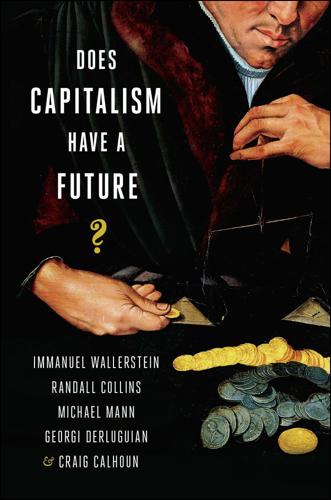
Does Capitalism Have a Future?
by
Immanuel Wallerstein
,
Randall Collins
,
Michael Mann
,
Georgi Derluguian
,
Craig Calhoun
,
Stephen Hoye
and
Audible Studios
Published 15 Nov 2013
The intervening Great Depression in the 1930s opened to leftists—but also to fascists—windows of political opportunity by severely discrediting and bankrupting the residual aristocratic monarchies, the oligarchic liberal regimes and their colonial empires of nineteenth-century vintage. The Cold War after 1945 stabilized the results of this epochal transformation for several more decades. The Cold War (another misnomer, actually meaning the “cold peace” of multiple truces and implied diplomatic understandings) institutionalized the internal reformist compromise and welfare provision in the Western democracies, thus containing the specter of revolution long haunting the West. The same Cold War ensured peaceful coexistence with the Soviet bloc, thus containing the old Western specter of war.
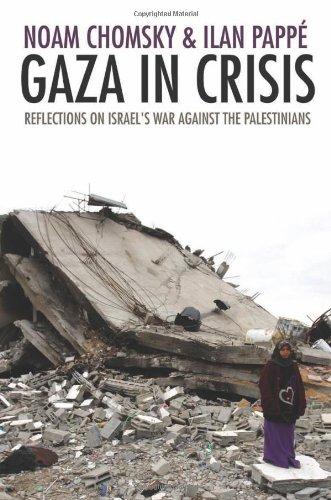
Gaza in Crisis: Reflections on Israel's War Against the Palestinians
by
Ilan Pappé
,
Noam Chomsky
and
Frank Barat
Published 9 Nov 2010
It is true that, in the very same period, the 1980s and 1990s, American peacemakers could have listed a number of achievements in the realm of Israeli bilateral relations with Jordan and Egypt. Ironically, these peace treaties were concluded because of minimal American involvement in the negotiations. The formula for their success—if the “cold peace” between Israel and its two neighbors can be described as such—was that the treaties did not relate to the Palestine question. The Oslo Accord, although it began in a similar way—namely with minimal American involvement—did become an American show. In fact, for the troubled President Clinton, it was the only show in town.
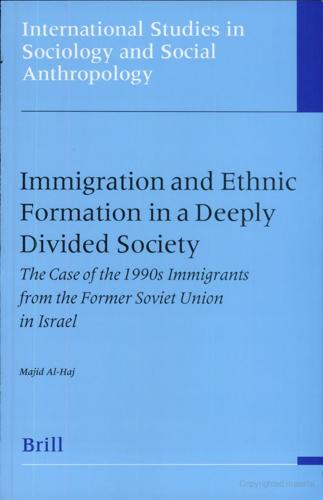
Immigration and Ethnic Formation in a Deeply Divided Society: The Case of the 1990s Immigrants From the Former Soviet Union in Israel
by
Majid Al Haj
Published 20 Nov 2003
One suggestion was to “stop talking about peace arrangement” and start talking about “political arrangements.” In the framework of such a peace, economic relationships are important, not economic integration. Of course “cultural integration” is out of question. The document emphasizes: “There is no need for us to have syndrome of ‘embracing the Arabs.’ A cold peace that reflects mutual strategic interests is enough” (Arad 2001: 47). How does this background affect Israeli attitudes toward the 1990s wave of immigration from the former Soviet Union? What is the effect of the ethno-national structure of Israel on the identity and adjustment strategy adopted by them?
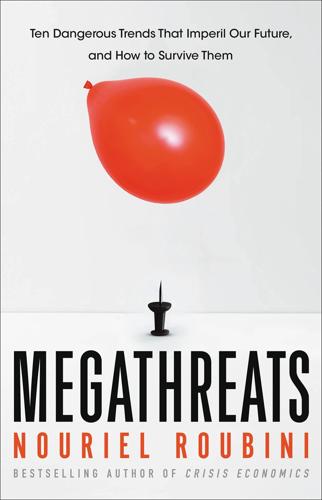
MegaThreats: Ten Dangerous Trends That Imperil Our Future, and How to Survive Them
by
Nouriel Roubini
Published 17 Oct 2022
v=RO3izbn201s @47m25s. 26. Kevin Rudd, “The Avoidable War: The Decade of Living Dangerously: Navigating the Shoals of U.S.-China Relations,” Asia Society Policy Institute, February 2021, p. 22, https://asiasociety.org/policy-institute/avoidable-war-decade-living-dangerously. 27. Fareed Zakaria, “The US and China’s ‘Cold Peace,’” Fareed Zakaria GPS, CNN, https://www.cnn.com/videos/tv/2021/08/08/exp-gps-0808-fareeds-take.cnn @ 1:20. August 8, 2021. 28. Cissy Zhou, “U.S.-China Decoupling,” South China Morning Post, September 16, 2021, https://www.scmp.com/economy/china-economy/article/3149027/us-china-decoupling-if-it-comes-down-us-bloc-vs-china-bloc. 29.
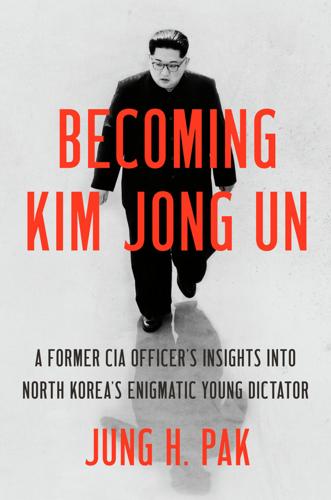
Becoming Kim Jong Un: A Former CIA Officer's Insights Into North Korea's Enigmatic Young Dictator
by
Jung H. Pak
Published 14 Apr 2020
After five decades of the Cold War, in which the United States and the Soviet Union had locked horns in an ideological confrontation, the West rejoiced in the collapse of the Soviet Union, seeing the event as a victory for liberal democracy and capitalism. The American political scientist Francis Fukuyama famously declared “the end of history.” The United States and Vietnam, where a hot war had punctuated the era of cold peace, normalized ties in 1995, a reconciliation that seemed to demonstrate to most observers that the world would now be marked by peaceful coexistence, with Washington as the global leader. Indeed, armed conflict decreased dramatically in the period between 1992 and 2003, and champions of globalization believed that mankind was on a linear path of progress with Western-style governance and economic models leading the way in knitting together the international community.

Transaction Man: The Rise of the Deal and the Decline of the American Dream
by
Nicholas Lemann
Published 9 Sep 2019
It operated the way it did only because it lived inside the intricately constructed and balanced social, economic, and political ecosystem that was created in the early days of the New Deal. In any ecosystem, if one element becomes much stronger or much weaker, the balance is upset and the whole system is at risk. American capitalism, forty years after Franklin Roosevelt took office, depended not just on the size and power of the corporation and on its cold peace with the federal government, but also on the passivity of capital. And in turn, the system’s ability to deliver a good life to ordinary people—at least the ones lucky enough to have positioned themselves within the system’s capacious reach—also depended on the passivity of capital, because the invulnerable corporation was supposed to supply Americans with the rudiments of prosperity and security.
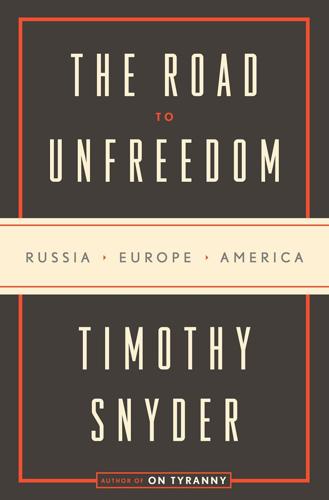
The Road to Unfreedom: Russia, Europe, America
by
Timothy Snyder
Published 2 Apr 2018
Evlampiev, “Ivan Il’in kak uchastnik sovremennykh diskussii,” in Evlampiev, ed., Ivan Aleksandrovich Ilin (Moscow: Rosspen, 2014), 8–34. Stalin and Russia: David Brandenberger, National Bolshevism (Cambridge, Mass.: Harvard UP, 2002); Serhy Yekelchyk, Stalin’s Empire of Memory (Toronto: University of Toronto Press, 2004). See also Yoram Gorlizki and Oleg Khlevniuk, Cold Peace (Oxford: Oxford UP, 2004); Hiroaki Kuromiya, Stalin (Harlow: Pearson Longman, 2005); Vladislav M. Zubok, A Failed Empire (Chapel Hill: University of North Carolina Press, 2007). Stalin’s economic policy See the sources cited above as well as Nashi zadachi, 152–55. On this theme from a different perspective, see Shaun Walker, The Long Hangover (Oxford: Oxford UP, 2018), “vacuum” at 1 and sic passim.
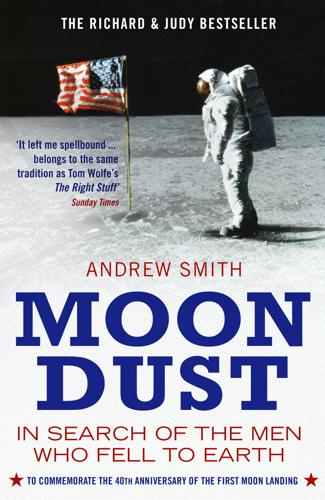
Moondust: In Search of the Men Who Fell to Earth
by
Andrew Smith
Published 3 Apr 2006
In fact, “Ike” resented the very thought, because the launch of Sputnik in 1957 ruined the final years of his second term. He knew the satellite represented no serious military threat and had been comfortable with what one historian characterized as the superpowers’ “tacit agreement to treat the Cold War as a Cold Peace.” What he hadn’t seen was the way his enemies and vested interests within the aerospace industry and military would be able to use Sputnik as a stick to beat him with. Throughout the Cold War, fear of communism had been exploited less by governments than by self-serving minor politicians and bureaucrats like Senator Joseph McCarthy and the Machiavellian FBI director J.
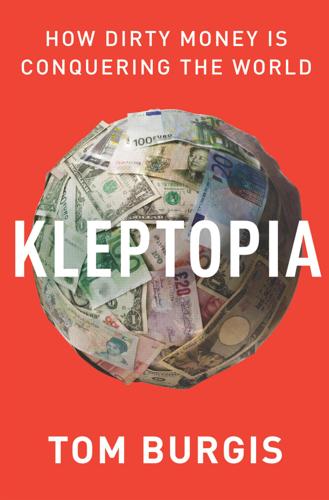
Kleptopia: How Dirty Money Is Conquering the World
by
Tom Burgis
Published 7 Sep 2020
Our intelligence agencies continue to assess all information, but it could very well be that the Crown Prince had knowledge of this tragic event – maybe he did and maybe he didn’t! MBS would continue to enjoy American support as he reduced Yemen to misery in a proxy war with Iran. Obama wanted the Saudis to find a way to ‘share the neighbourhood’ with the Iranians and ‘institute some sort of cold peace’; Trump tore up the nuclear deal that had begun that process. He could say he was just continuing longstanding American policy in the region. And yes, Washington had stood behind Riyadh for generations. But that was part of the genius of the new kleptocrats. They made skilful use of what Peter Sahlas called the presumption of regularity.
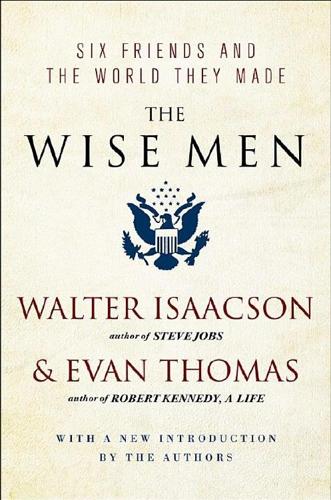
The Wise Men: Six Friends and the World They Made
by
Walter Isaacson
and
Evan Thomas
Published 28 Feb 2012
VIEWS ON TRUMAN’S NEW ATTITUDE: Donovan, Conflict and Crisis, 42–43; Leahy, I Was There, 352; Vandenberg, ed., The Private Papers of Senator Vandenberg, 176; Churchill, Triumph and Tragedy, 492; Time, Apr. 30, 1945; Larson dissertation, “Belief and Inference,” 229. MEETING AT THE ELBE: Weisberger, Cold War, Cold Peace, 9; Time, May 7, 1945. HARRIMAN’S BRIEFINGS IN SAN FRANCISCO: Authors’ interviews with Averell Harriman; Harriman and Abel, Special Envoy, 454–457; Bland dissertation, “W. Averell Harriman: Businessman and Diplomat, 1891–1945,” 390–393; Larson dissertation, “Belief and Inference,” 231, 253; Harriman interview, Dulles Oral History Project, Princeton University; FRUS, 1945, 1, 389–398; Bohlen, Witness to History, 214–215; Steel, Walter Lippmann and the American Century, 419420; Lippmann columns, Apr. 26 and May 12, 1945; Time, May 7, 1945, Stone, “Anti-Russian Undertow”; Gaddis, The U.S. and the Origins of the Cold War, 226–227.
…
The Private Papers of Senator Vandenberg. Boston: Houghton Mifflin, 1972. Views from the Circle (a collection of Groton graduates). Groton: privately printed, 1960. Warburg, James. The Money Muddle. New York: Knopf, 1934. Weil, Martin. A Pretty Good Club. New York: W. W. Norton, 1978. Weisberger, Bernard. Cold War Cold Peace. New York: American Heritage, 1985. White, Theodore H. America in Search of Itself. New York: Harper & Row, 1982. ————. Fire in the Ashes. New York: William Sloane Associates, 1953. ————. In Search of History. New York: Harper & Row, 1982. Williams, William Appleman. The Tragedy of American Diplomacy.
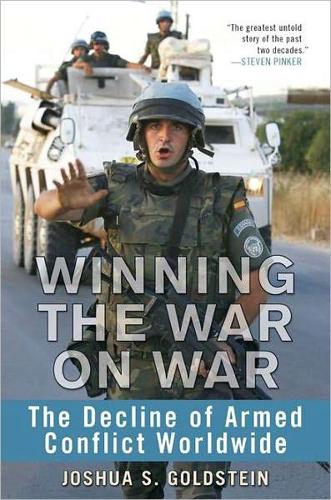
Winning the War on War: The Decline of Armed Conflict Worldwide
by
Joshua S. Goldstein
Published 15 Sep 2011
Later, Bunche would have to clean up “a smuggling ring that had developed among the temporary UN radio operators in Haifa.” Despite these problems, the UNTSO did effectively strengthen the truce between Israel and its Arab neighbors. Over the years, more wars would come, but little by little—starting from the 1948 truce—both Egypt and Jordan developed peace with Israel. It is a cold peace but a durable one. The UNTSO, like the Arab-Israeli conflict, has lasted for sixty years. It now has about 150 military observers supported by about 100 international civilian administrators and about 150 local civilian workers, on a budget of $66 million a year. In his mediator role, Bunche spent nearly a year hammering out armistice agreements between Israel and its four Arab neighbors.
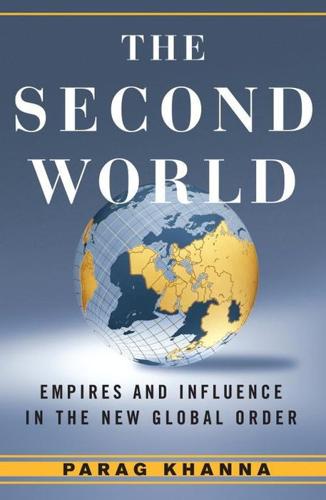
Second World: Empires and Influence in the New Global Order
by
Parag Khanna
Published 4 Mar 2008
Along the canal, the dredging is under way to accommodate the passage of giant ships to and from its new main user: China. Much of Egypt’s diplomatic clout has rested on its position as the Arabs’ main interlocutor with Israel, against whom it has also sacrificed the most blood. Anwar Sadat’s 1979 peace treaty with Israel, however, earned it expulsion from the Arab League for over a decade. The subsequent “cold peace” with Israel led to a flourishing of the southern Sinai tourist paradise of Sharm el-Sheikh, on the Red Sea, to which throngs of unemployed young Egyptians flock in search of work. Even at slave wages, the pristine resorts seem like a dream to them.2 Bedouin in the Sinai have complained that they were treated better under Israel’s occupation than under the crass Mubarak regime, which has failed to use tourism revenues to turn the peninsula into a crossing for pilgrims rather than drugs and weapons.
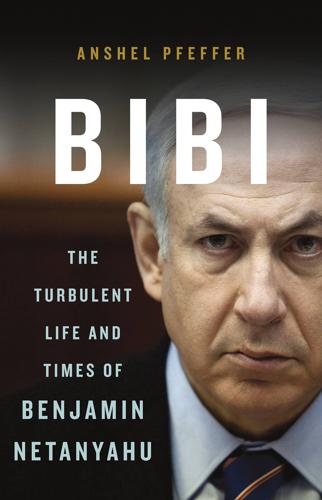
Bibi: The Turbulent Life and Times of Benjamin Netanyahu
by
Anshel Pfeffer
Published 30 Apr 2018
That part of the deal was meaningless. Ultimately, both sides got what they wanted: Sadat restored Egyptian sovereignty to the entire Sinai Peninsula, including the dismantlement of Begin’s cherished settlements there, and Begin got a full peace deal with Egypt, separate from the empty promises on the Palestinian issue. It was a “cold peace,” but Israel no longer faced a powerful enemy on its southern border. Egypt became another American ally in the Middle East. Many Likudniks saw Begin’s decision as an ideological betrayal, and only 29 out of the party’s 43 MKs voted in favor of the Camp David Accords; the overall vote was 84 in favor and 13 opposed.
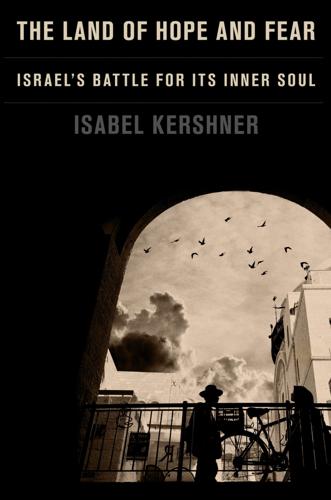
The Land of Hope and Fear: Israel's Battle for Its Inner Soul
by
Isabel Kershner
Published 16 May 2023
It was so rare, and refreshing, to hear worldly Israelis concede that their country could learn something from Arabs, and it felt as if at least some of the perceptions underpinning the Israel-Arab conflict had been upended. This new partnership was unlike any other Israel had known in the Arab world. Decades after peace treaties had been signed with Egypt and Jordan, a “cold peace” still reigned. Those countries maintained strong security ties with Israel but at the popular level there was hostility against any “normalization” of relations, few business ties, and little interaction, all stymied by Israeli policies toward the Palestinians. Any tourism was largely one-way, with Israelis keen to visit the archaeological wonders of Egypt and Jordan but avoiding speaking Hebrew in public when they were there.
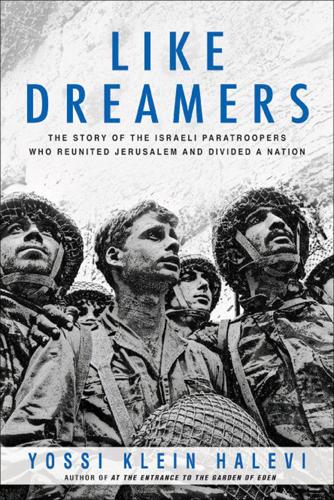
Like Dreamers: The Story of the Israeli Paratroopers Who Reunited Jerusalem and Divided a Nation
by
Yossi Klein Halevi
Published 4 Nov 2014
But, Yoel now argued, we had failed to understand Rabin’s intentions. Unlike the Likud, Rabin had no illusions about genuine peace with the Egyptians, and so he’d preferred a nonbelligerency arrangement that was less than formal peace and wouldn’t require total Israeli withdrawal. And nonbelligerency, after all, was all that remained for Israel of its cold peace with Egypt. If we continued to demand Israeli sovereignty over all of Judea and Samaria, Yoel warned, we will end up with nothing, just like in Sinai. But if we separate settlement building from annexation, we might find Rabin our most effective ally. YITZHAK RABIN OFFERED his usual limp handshake to the two men in knitted kippot who had come to his office at the Defense Ministry in Tel Aviv.
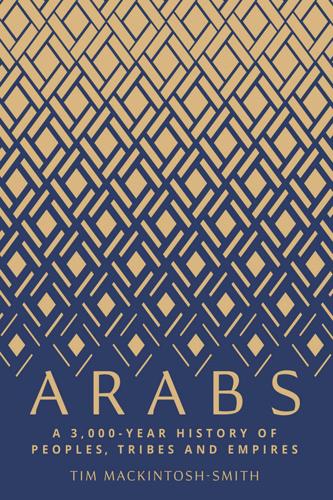
Arabs: A 3,000 Year History of Peoples, Tribes and Empires
by
Tim Mackintosh-Smith
Published 2 Mar 2019
The Israelis spoke vaguely of the eventual self-rule of the regions, but would not be tied to details. The Americans had got the all-important handshake for the cameras; now, like Rome’s special representative in Palestine, Pontius Pilate, they could wash their own hands of the mucky business. Al-Sadat’s treaty with Israel was ‘a cold peace’, and it sent shivers of disgust through the Arabic world. Nizar Qabbani wrote, despairing of the future, They’ve given us the Pill That stops our history having children . . . Egypt was cold-shouldered by its fellow Arab states. Even the Arab League roused itself from its clubbish torpor and removed itself from Cairo to Tunis.
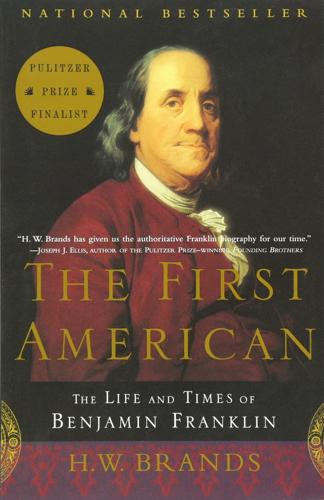
The First American: The Life and Times of Benjamin Franklin
by
H. W. Brands
Published 1 Jan 2000
.: The Last Romantic Since Vietnam: The United States in World Affairs, 1973–1995 The Wages of Globalism: Lyndon Johnson and the Limits of American Power The Reckless Decade: America in the 1890s The United States in the World: A History of American Foreign Policy Into the Labyrinth: The United States and the Middle East, 1945–1993 The Devil We Knew: Americans and the Cold War Bound to Empire: The United States and the Philippines Inside the Cold War: Loy Henderson and the Rise of the American Empire, 1918–1961 India and the United States: The Cold Peace The Specter of Neutralism: The United States and the Emergence of the Third World, 1947–1960 Cold Warriors: Eisenhower’s Generation and American Foreign Policy Contents PROLOGUE: JANUARY 29, 1774 1. BOSTON BEGINNINGS: 1706–23 2. FRIENDS AND OTHER STRANGERS: 1723–24 3. LONDON ONCE: 1724–26 4.
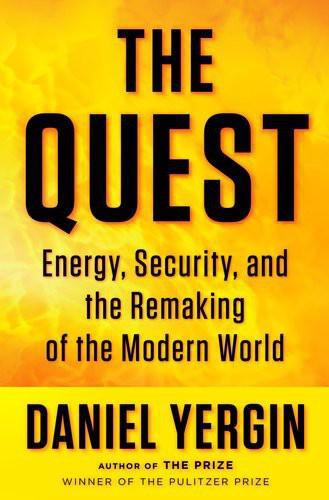
The Quest: Energy, Security, and the Remaking of the Modern World
by
Daniel Yergin
Published 14 May 2011
All of this played out on television and the Internet. The Arab world was transfixed, for Egypt plays a unique role in the region. It is a quarter of the total Arab population, and its influence reaches throughout the area. As one Saudi said, “We were all taught by Egyptians.” It had also signed a treaty with Israel, and a kind of cold peace existed between those two former belligerents. Egypt’s size—and the scale of its armed forces—make it the foundation of the geostrategic balance of the region. Finally, on February 11, 2011, Mubarak gave up power. The nature of Egypt’s future government would have great significance for the entire Middle East.
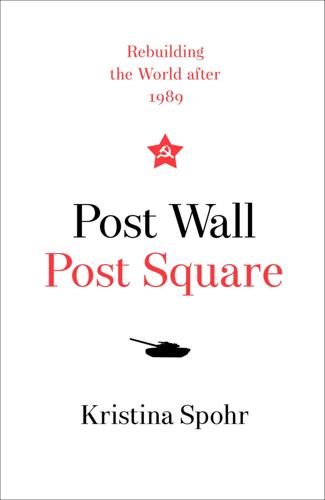
Post Wall: Rebuilding the World After 1989
by
Kristina Spohr
Published 23 Sep 2019
John Movroydis ‘Synopsis: The Rise of Xi Jinping and China as Global Player’ 26.6.2018 Richard Nixon Presidential Library and Museum website Back to text 25. Jonathan Hillman ‘A Chinese World Order’ WP 23.7.2018 Back to text 26. Cf. Odd Arne Westad ‘The Cold War and America’s Delusion of Victory’ NYT 28.8.2017 Back to text 27. In view of Europe, this era has also been coined an epoch of ‘cold peace’ – a time when a peace system marked by the tension between cooperative and competitive behaviour of Russia and the Atlantic community – which lasted from 1992 until the crisis exploded in Ukraine in 2014 provoking what some have called a ‘new Cold War’. See Richard Sakwa Russia Against the Rest: The Post-Cold War Crisis of World Order Cambridge UP 2017.